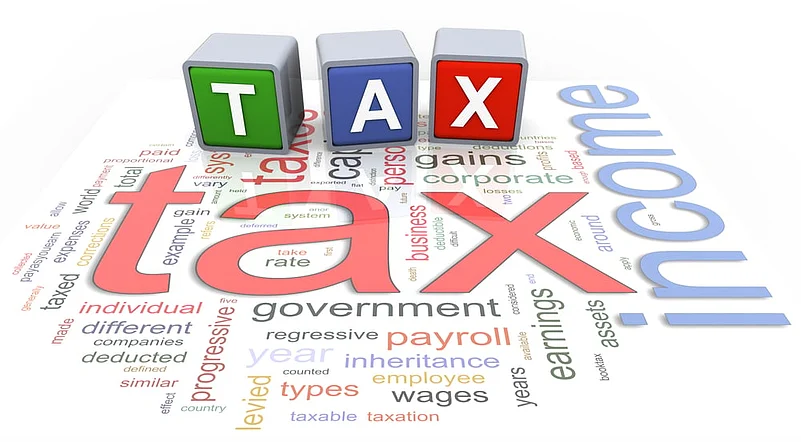From individuals filing tax returns to startups or firms handling taxes quarterly and annually, it is crucial to understand the tax system and proper accounting practices. Mastering these can help you stay on top of your fees, reduce your tax burden, and remain in compliance with legal requirements. This guide covers the basics of tax filing, the role of professional accountants, and strategies to minimize your tax liabilities. Whether you’re an employee, self-employed, or a business owner, understanding tax and accounting principles is key to financial growth.
Tax & Accounting 101
Taxes and accounting can be daunting, but they are essential for your financial well-being. Whether filing personal taxes or managing business finances, knowing how taxes are assessed and how to keep your accounts organized is crucial.
Tax Laws Vary by Location
Tax laws differ based on where you live and the types of income you earn. As a business owner, staying informed about federal, state, and local tax codes is vital. Whether you choose to handle taxes yourself or hire an accountant, getting it right can save you money and time.
Types of Taxes in the U.S.
Tax and accounting mastery begins with understanding the different types of taxes that apply to you. Here’s a breakdown:
Income Tax
Income tax is the most common tax, applied to earnings from your job, business, or investments. Both individuals and corporations pay income tax.
Payroll Tax
Payroll tax is withheld from employees’ paychecks by employers to fund Social Security and Medicare. Self-employed individuals pay this tax directly.
Corporate Tax
Corporate tax is levied on businesses’ income, with rates depending on the business structure (LLC, Corporation, Sole Proprietorship).
Sales Tax
Sales tax is charged on goods and services. Rates vary by state, county, and city.
Property Tax
Property tax is based on the value of your property and is used to fund local services like schools and emergency services.
Estate and Gift Tax
Estate and gift tax applies to inherited wealth and large financial gifts, typically affecting the wealthy.
Tax Filing Process
Filing taxes in the U.S. can seem overwhelming, but breaking it down intod manageable steps can simplify the process. Here’s a quick guide:
Find Your Taxable Income
Gather all your income documents such as W-2s, 1099s, and other records. Include wages, freelance income, investment income, and other taxable sources.
Apply Deductions and Credits
Tax deductions lower how much of your income is taxed. Common deductions include mortgage interest, student loans, medical expenses, and charitable donations.
Tax credits directly reduce the amount of tax you owe.
Prepare Your Tax Return
Individuals use Form 1040, while businesses file other forms based on their structure (Form 1120 for corporations).
Pay What You Owe (or Get a Refund)
If taxes are withheld from your paycheck, you may receive a refund. If you owe taxes, ensure payment by the due date.
Tax Deadlines and Penalties
Failing to file on time can result in penalties and interest. Some important deadlines include:
April 15: Tax Filing Deadline
April 15 is the standard deadline for individuals to file taxes.
Extensions
If you request an extension by April 15, this extends your deadline.
Estimated Taxes
Self-employed individuals are typically required to make quarterly estimated tax payments to avoid penalties.
The Role of Accountants in Tax Filing
Many people prefer to hire an accountant or tax professional for accurate filings and to minimize taxes. Accountants can assist by:
Tracking Business Expenses
Accountants track business expenses to ensure all eligible deductions are claimed, significantly reducing taxable income.
Tax Strategies
Accountants offer strategies to help individuals and businesses minimize tax liabilities.
Staying Compliant
Tax laws constantly evolve, so accountants ensure your filings stay compliant with current regulations.
How to Lower Your Tax Bill
Reducing your tax liability is essential in mastering tax and accounting. Some effective strategies include:
Deductions to Claim
Common deductions include business expenses, mortgage interest, medical expenses, and education-related costs.
Tax Credits
Take advantage of credits like the Child Tax Credit or Earned Income Tax Credit.
Fund Your Retirement Accounts
Contributions to a 401(k), IRA, or other retirement accounts reduce taxable income and secure your future.
Maximize Tax-Advantaged Accounts
Health Savings Accounts (HSAs) help you save for healthcare expenses tax-free.
Benefits of Accounting Services for Professionals
Professional accounting services offer several key benefits:
Expertise
Accountants bring deep knowledge of tax laws, accounting practices, and financial planning.
Time Savings
Outsourcing tax filing and accounting frees up your time to grow your business or enjoy life.
Peace of Mind
Professional services reduce the chances of mistakes, audits, or missed deductions.
Tax and accounting expertise go beyond simply filing on time—it’s about understanding the process, minimizing liabilities, and ensuring the health of your finances. Professional services provide invaluable resources for financial stability and success, whether you’re filing taxes for the first time or managing a growing business.
Getting the right tax and accounting services early on ensures your finances stay compliant with the law and ready for future growth.
At QuickTaxAndAccounting, they treat your financial needs with the personal care they deserve. With an understanding of the unique challenges you face, they offer solutions that make tax preparation and accounting simpler, so you can focus on what matters most. Their team is dedicated to guiding you through each step, ensuring your financial journey is smooth and stress-free. Whether you’re an individual or a business, you’ll feel supported and confident knowing QuickTaxAndAccounting has your back every step of the way.
























